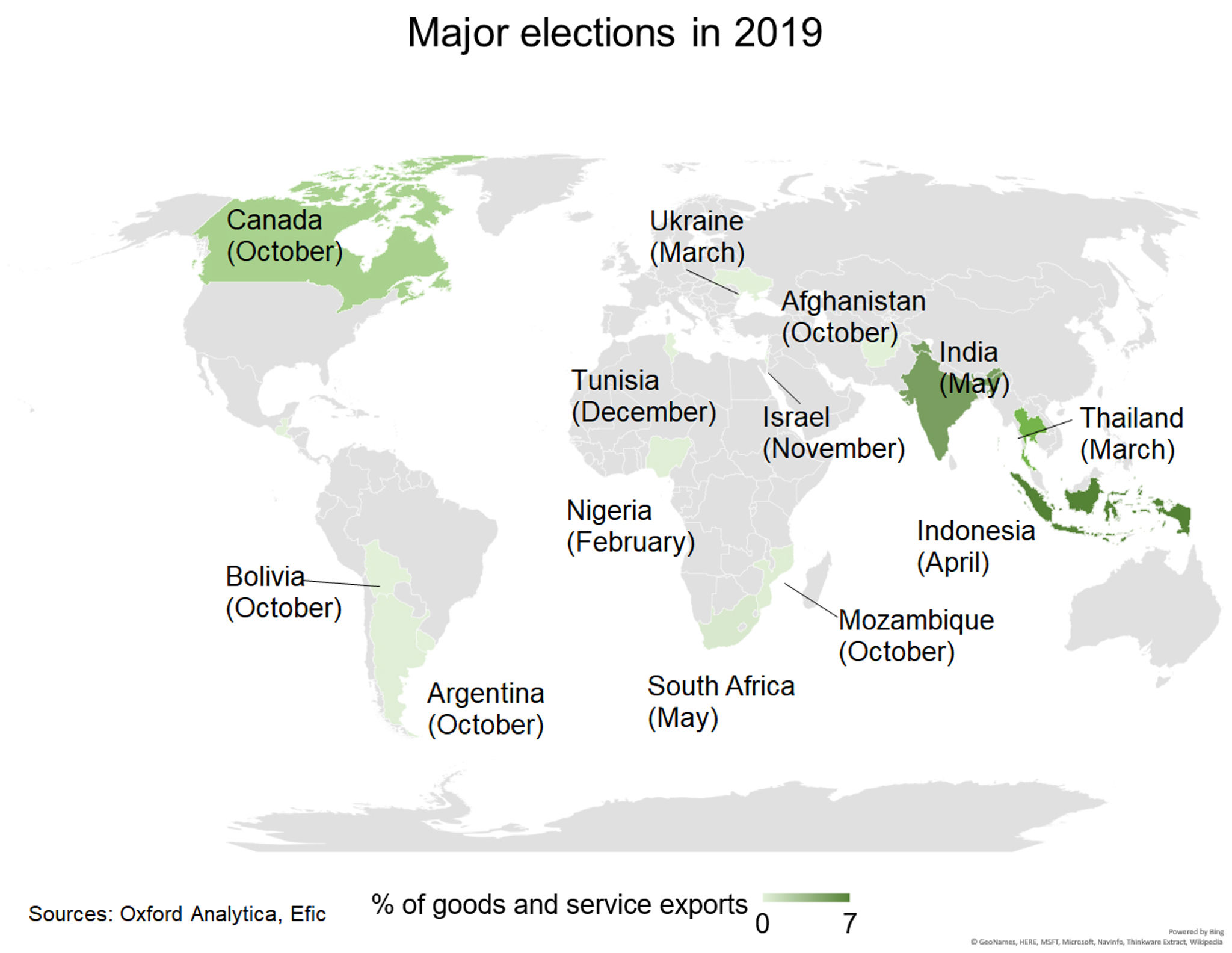Australia’s key regional trading partners, India, Thailand and Indonesia, are set to hold elections in 2019 (Chart). Elections will be fought on the state of the domestic economy and policies that push the development agenda forward. We preview the major elections below.
Thailand
Thailand is to return to democracy with elections to be held in March for the first time since the 2014 coup. Polling suggests that Prime Minister Prayut Chan-o-Cha, on behalf of the Phalang Pracharat Party, is the favourite. The party is campaigning on a grassroots development program, which includes developing new manufacturing and service hubs. Free and fair elections and, more importantly, political stability would encourage greater foreign investment, which has languished since the 2014 coup. The Thai economy is enjoying the fastest pace of growth in six years, but forecasts for 2019 have been shaved as slowing global trade weighs. Further, Thailand’s growth remains well behind its ASEAN-5 peers.
Indonesia
Indonesian presidential elections are scheduled for April. The incumbent, Joko Widodo, will square off against retired general Prabowo Subianto, his opponent at the 2014 elections. Under President Widodo, growth has averaged 5% p.a., at the lower end of Indonesia’s 5% to 6% potential growth range. But positive economic reforms including improved logistics have improved business conditions. After Bank Indonesia hiked its policy rate 175bps over 2018 in an effort to shore up the flagging rupiah, the currency appears to have stabilised. Australian exports to Indonesia have grown 6.3% p.a. over the last five years, stronger than the 5.6% growth in total exports.
India
Indian elections are set for May. Current polls favour Prime Minister Modi and his ruling BJP party—despite defeats at recent state elections, the resignation of India’s central bank governor, and increased apparent unity in the often-fragmented opposition, which could erode the current government’s popularity. A win for opposition parties could herald investor uncertainty given their economic policies have not been fully articulated. Still, India remains the world’s fastest-growing major economy, with positive economic reforms and a large population supporting both the growth outlook and long-term demand for Australian goods and services.

